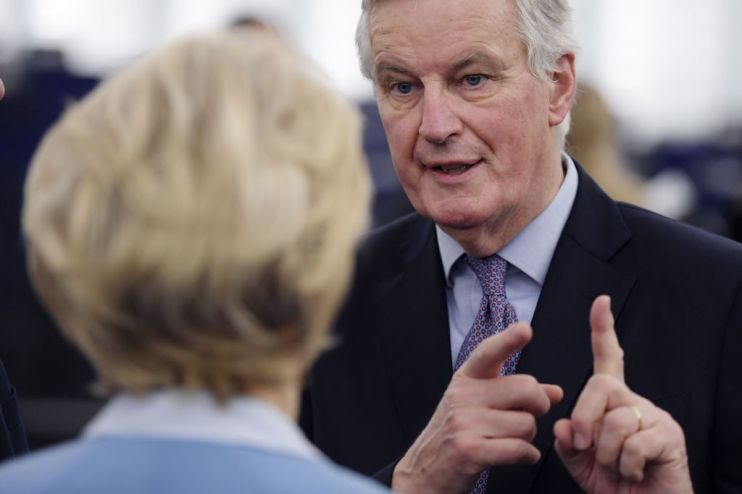Brexit: Michel Barnier tells UK government not to ‘kid themselves’ on financial services deal

The EU’s chief negotiator Michel Barnier has this morning rejected the UK government’s call for a financial services deal to be built on a long-term equivalence regime, and warned Downing Street that Brussels will “keep control”.
Speaking to the European Parliament entirely in French, Barnier emphasised that it “cannot be business as usual” after the transition period ends in December this year, when the UK will leave the EU’s Single Market and customs union.
“Come what may” the EU would impose checks at the border, as it does “with every other country in the world”, the head of the EU taskforce for relations with the UK said.
On the future relationship for financial services, Barnier had a warning for Whitehall.
“I want to make it clear to certain people in the UK that they should not kid themselves. There will not be general open-ended ongoing equivalence in financial services,” he said. “We will keep control of these tools and we will retain a free hand to make decisions.”
“There will be no negotiations as such on financial services,” Barnier added. “Given the importance of the City, we do need to take stock of this. We therefore need to resort to a toolbox… just as in the case of data, where we have adequacy decisions.
“We are not negotiating on these topics with the United Kingdom, rather we are checking there is consistency and wherever possible, we will grant equivalence on particular sectors of the financial industry. That is what we do with Canada, with US and Japan, and it works, so I don’t see why it wouldn’t work with the UK.”
His comments come after City A.M. exclusively revealed that Downing Street is planning to press for outcome-based equivalence as the foundation of a deal on financial services.
The EU has long argued that it should retain the right to unilaterally withdraw access to its market, depending the extent of third party divergence.
The European Commission last summer highlighted how equivalence “has become a significant tool in recent years, fostering integration of global financial markets and cooperation with third-country authorities”.